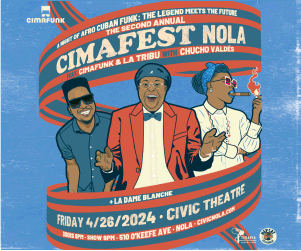The Association for Cultural Equity (ACE) has launched of the Lomax Digital Archive, a website that provides free access to audio/visual collections compiled across seven decades by folklorist Alan Lomax (1915–2002) and his father John A. Lomax (1867–1948). The digital resource was supported by the National Endowment for the Humanties’ NEH Cares program.
For nearly ten years, ACE has hosted online the entirety of Alan Lomax’s photographs and tape recordings—made throughout the US and the world between 1946 and 1991—as well as transcriptions of his 1940s-era radio programs, and a selection of clips from his film and video-work of the 1970s and ’80s. The LDA offers all of this material through a totally redesigned user interface, with more intuitive search and browse functions, as well as easier means of embedding content and social-media sharing recordings, photos and video.
The Lomax Digital Archive (LDA) also expands the website exponentially through the inclusion of collections compiled by the Lomaxes under the auspices of the Archive of Folk Song at the Library of Congress between 1933 and 1942. First and foremost, these include the entire 70 hours of their Kentucky recordings and the 39 hours of Mississippi recordings. This latter material includes the first recordings of Muddy Waters, Honeyboy Edwards, and Sid Hemphill. Although this material has been issued in assorted iterations over the years, the LDA makes it possible to listen to them in their entirety in their original recording contexts. As funds become available to digitize and catalog other collections from this period, more of the collection will become available. These include recordings made by several of Alan’s collaborators, among them John W. Work III and Mary Elizabeth Barnicle, and are presented in partnership with ACE’s colleagues at the LC’s American Folklife Center.
Louisiana-related content on the LDA includes recordings of Huddie “Lead Belly” Ledbetter singing “Get on Board” in 1938, Alphonse Picou and Paul Dominguez discussing Buddy Bolden performing jazz standards in 1949, video of a White Eagles Mardi Gras Indian practice from 1982, and video of Cajun fiddler Canray Fontenot from 1983.
The catalogs are searchable and browsable by a range of taxonomies—performers, instrument, location, genre, etc.—and every recording and image is described by extensive item-level metadata. Nothing is excluded—every microphone check and struck tuning fork can be heard on the recordings.
A crucial aspect of the LDA is its capacity for virtual exhibitions, which will allow for thoughtful, context-rich explorations into specific aspects of the collections: be they instruments, locations, traditions, performers, or themes. The inaugural presentation is Trouble Won’t Last Always, which compiles the several dozen performances that comprised ACE’s daily song series of the same name, launched in the early days of the pandemic. Trouble consists of recordings from across the Lomax collections that speak to themes of loneliness, isolation, optimism, endurance, and transcendence selected and annotated by LDA curator Nathan Salsburg, and with an introduction by Dom Flemons, known as the American Songster.
For more information, visit the Lomax Digital Archive here.




